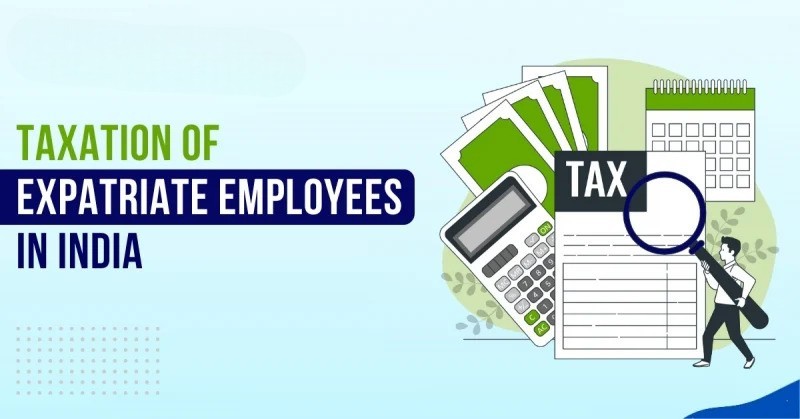Taxation of Expatriate Employees in India
posted on Dec 13, 2024
Understanding the taxation of expatriate employees in India is crucial for both individuals and businesses. Navigating the complex tax laws can be daunting, but it’s essential for compliance and financial planning.

Who is Considered an Expatriate in India?
Definition of an ExpatriateAn expatriate, often referred to as an expat, is an individual residing in a country other than their native one. In India, this typically includes foreign nationals working for multinational companies or local subsidiaries.
Resident vs. Non-ResidentThe distinction between a resident and a non-resident is vital for tax purposes. Residents are taxed on their global income, while non-residents are taxed only on income earned in India.
Tax Residency Rules in India
Basic Criteria for Tax ResidencyAn individual’s tax residency status in India is determined based on their physical presence in the country. The primary criteria include being in India for 182 days or more in a financial year.
Conditions for Becoming a Tax ResidentAdditionally, one can become a tax resident if they have been in India for 60 days or more in a financial year and 365 days or more in the preceding four years.
Types of Income Taxable in India
Salary IncomeSalary income, including allowances and bonuses, is fully taxable for expatriates. The tax is deducted at source by the employer.
Income from House PropertyIncome from house property owned in India, whether rented or self-occupied, is subject to tax.
Capital GainsCapital gains from the sale of assets such as property or shares are taxable in India. The tax rate depends on the type and holding period of the asset.
Other IncomeOther taxable income includes interest from bank deposits, dividends, and any other earnings.
Special Provisions for ExpatriatesExemptions and DeductionsExpatriates can benefit from various exemptions and deductions, such as house rent allowance (HRA) and standard deductions.
Double Taxation Avoidance Agreements (DTAA)India has DTAA with several countries to prevent double taxation. Expatriates can claim relief under these agreements.
Filing Income Tax Returns in India
Process and DeadlinesExpatriates must file their income tax returns annually, with the deadline usually set for July 31st of the assessment year.
Required DocumentationKey documents include Form 16 (issued by the employer), bank statements, and proof of investments for claiming deductions.
Compliance and Reporting Requirements
Annual Reporting ObligationsExpatriates must adhere to annual reporting obligations, including declaring their global income if they are residents.
Penalties for Non-ComplianceNon-compliance with tax laws can result in penalties, interest on unpaid taxes, and legal consequences.
Social Security Contributions
Applicability to ExpatriatesExpatriates are generally required to contribute to India’s social security schemes unless exempt under bilateral agreements.
Agreements with Other CountriesIndia has social security agreements with several countries, allowing expatriates to avoid dual contributions.
Common Challenges and Solutions
Cultural and Administrative BarriersExpatriates may face cultural and administrative barriers in understanding Indian tax laws. Seeking professional advice is often beneficial.
Seeking Professional HelpEngaging tax consultants or firms specializing in expatriate taxation can simplify compliance and optimize tax liabilities.
Case Studies and Examples
Example 1: Short-Term AssignmentAn expatriate on a six-month assignment in India needs to understand the implications of their non-resident status on tax liabilities.
Example 2: Long-Term AssignmentA long-term assignee must consider their resident status and the impact on global income taxation.
Recent Changes in Taxation Laws
Impact on ExpatriatesRecent amendments in tax laws can significantly affect expatriates. Staying updated with these changes is crucial.
Future TrendsFuture trends may include more digitalization in tax filings and stricter compliance requirements.
Conclusion
Summary of Key PointsUnderstanding the taxation of expatriate employees in India involves grasping residency rules, income types, applicable tax rates, and compliance requirements.
Final ThoughtsStaying compliant and informed about tax obligations can ensure a smoother expatriate experience in India.
FAQs
What is the definition of an expatriate in India?An expatriate is an individual residing in a country other than their native one, often for work purposes.
How are expatriates taxed in India?Expatriates are taxed based on their residency status, with residents taxed on global income and non-residents on Indian income.
What are the tax residency rules for expatriates?Residency is determined by physical presence, with specific criteria for days spent in India.
Can expatriates claim tax deductions in India?Yes, expatriates can claim various deductions and exemptions, such as HRA and standard deductions.
What should expatriates know about social security contributions in India?Expatriates may need to contribute to India’s social security schemes unless exempt under international agreements.